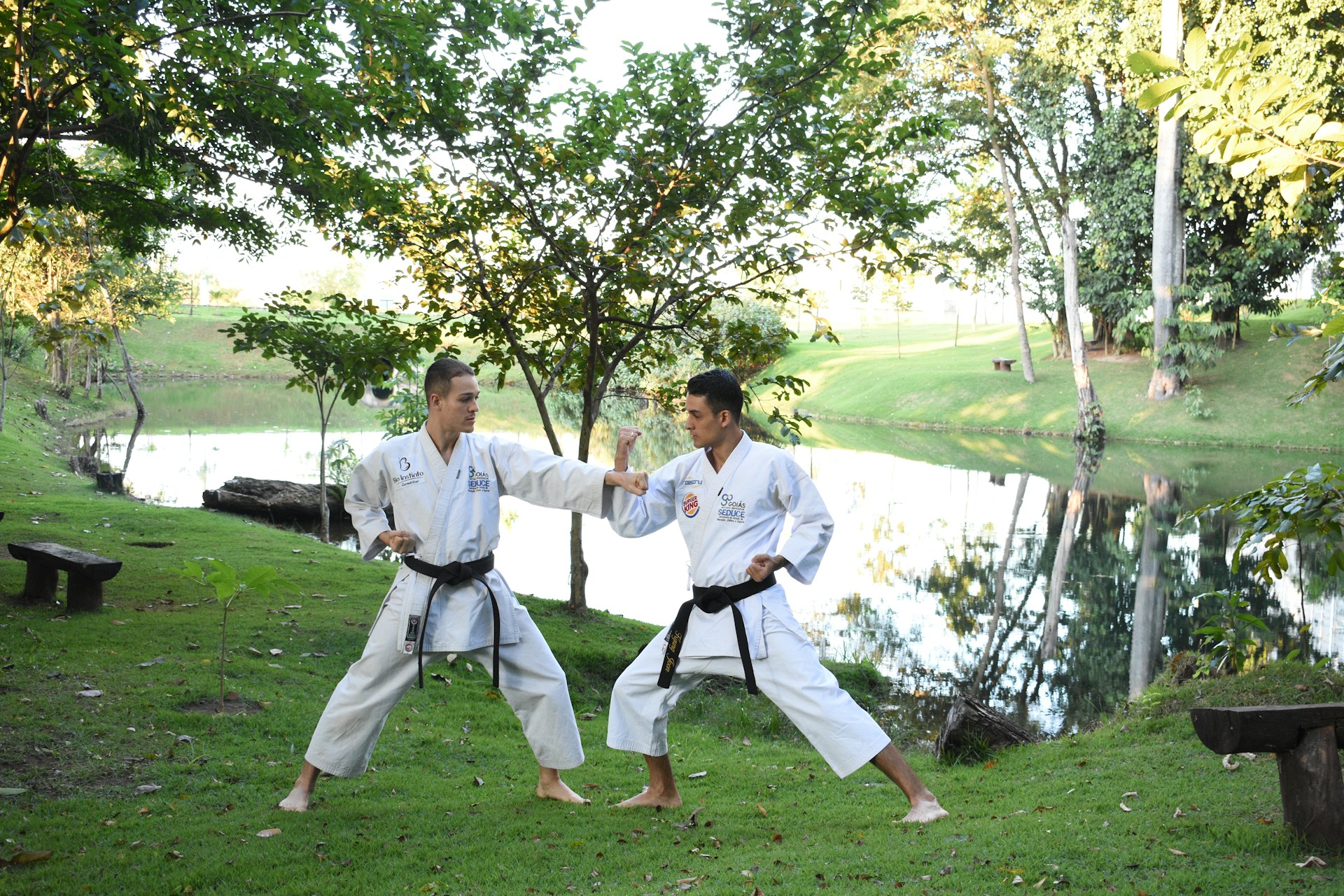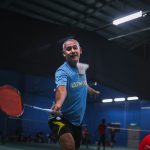In the competitive world of combat sports, athletes must equip themselves with more than just physical strength and technical skills. Increasingly, an athlete’s psychological preparedness has been recognised as a vital element in determining performance. Studies from Pubmed, Crossref, and Google Scholar have underscored the significant impact of mental training on an athlete’s performance, proving that the mind is just as critical as the body in sports.
Psychological Training and Performance: An Overview
Before delving into the specifics of psychological training in combat sports, it’s important to understand its general relevance in sports. Performance isn’t merely about the physical capabilities of athletes. Psychological factors significantly influence an athlete’s readiness and overall performance. A comprehensive understanding of this can be garnered from a study available on Google Scholar authored by renowned sports psychologists.
En parallèle : What are the top breathing exercises for UK wrestlers to control their breathing under stress?
Psychological training involves equipping athletes with strategies to manage anxiety, improve focus, develop mental toughness, foster motivation, and enhance confidence. Furthermore, Crossref and Google Scholar studies highlight the role of mental health in sustaining an athlete’s performance and overall well-being. This means that a comprehensive psychological training regimen is as much about managing mental health as it is about boosting performance.
Importance of Anxiety Management
According to a Pubmed study, combat sports athletes often face higher levels of anxiety due to the intense and high-stakes nature of their sport. The capacity to effectively manage anxiety is a critical component of psychological training in combat sports.
A lire en complément : How do UK Muay Thai coaches help fighters develop knee-strike precision?
Anxiety can adversely impact an athlete’s performance by clouding judgement, reducing reaction speed, and impairing decision-making abilities. This factor becomes particularly critical in combat sports where split-second decisions can mean the difference between a win or loss. To help athletes manage anxiety and stress, strategies such as mindfulness, meditation, and breathing exercises are often incorporated into their psychological training regimen.
The Role of Mental Toughness
Mental toughness is a key determinant of success in combat sports. It involves an athlete’s ability to persist in the face of challenges, maintain focus and determination even under pressure, and recover quickly from setbacks.
A study available on Crossref suggests that mental toughness can be developed and improved through psychological training. Techniques such as self-talk, visualisation, and goal setting form critical components of fostering mental toughness.
Confidence and Motivation: The Power Duo
In any sport, an athlete’s confidence and motivation significantly influence their performance. This holds particularly true for combat sports, where an athlete’s belief in their abilities can provide them with a competitive edge.
Psychological training incorporates elements that help build confidence and foster motivation in athletes. Confidence-building strategies could include positive self-talk, visualisation of successful performance, and the use of performance accomplishments as evidence of capability. In terms of motivation, setting challenging but achievable goals and cultivating intrinsic motivation are crucial components of psychological training.
Mental Health and Athlete Performance
Finally, the importance of mental health in an athlete’s performance cannot be overstated. A study authored by a renowned sports psychologist on Google Scholar highlights that athletes, just like any other individuals, are susceptible to mental health issues such as depression, anxiety disorders, and eating disorders.
The impact of these mental health issues can be detrimental to an athlete’s performance and overall well-being. Therefore, psychological training for combat sports athletes should also focus on promoting mental health. This could be achieved through regular mental health check-ups, incorporating stress management techniques, and providing resources for counselling and therapy.
In conclusion, psychological training is a complex, multifaceted aspect of an athlete’s preparation that goes beyond merely improving sports performance. It encompasses managing anxiety, fostering mental toughness, building confidence and motivation, and promoting robust mental health. The ultimate goal is to develop resilient athletes who are not only physically fit but also mentally equipped to face the intense demands of combat sports.
Incorporating Martial Arts as a Tool for Psychological Training
Drawing from ancient wisdom, martial arts have been recognised as a potent tool for transforming an individual’s mindset. In the realm of combat sports, incorporating elements of martial arts in psychological training can yield significant benefits. Notably, a study on Google Scholar by renowned sports psychologists reveals that martial arts training helps athletes develop discipline, resilience, and respect for their opponents, thereby enhancing their mental toughness.
Martial arts encourage self-discipline, a trait that’s critical for combat sports athletes. Self-discipline fosters consistency in training, promotes adherence to diet and sleep routines, and supports the athletes in managing their emotional responses during high-pressure scenarios. Moreover, martial arts emphasise the spirit of resilience, enabling athletes to bounce back quickly from setbacks, a trait that directly contributes to mental toughness.
The practice of martial arts also instils respect for the opponent, an aspect that aids in managing anxiety. Recognising the opponent as a partner in the journey rather than an adversary can help reduce anxiety and promote a positive mindset. Martial arts can also aid in fostering concentration and mindfulness, traits that can enhance an athlete’s performance in the ring.
The Impact of Sports Psychology on Elite Athletes
Sports psychology has been a game-changer for elite athletes in combat sports. According to various DOI Crossref and PubMed Crossref studies, sports psychology interventions have helped athletes improve their focus, manage pressure, and build resilience – traits critical for excelling in combat sports.
Sports psychology interventions can involve a variety of strategies such as mindfulness training, cognitive-behavioural therapy, biofeedback, and hypnosis. For instance, mindfulness training, as stated in a Sports Psychol DOI study, helps athletes stay focused on the present moment, reducing their tendency to dwell on past mistakes or future outcomes. Similarly, cognitive-behavioural therapy can help athletes challenge negative thought patterns and build confidence.
Furthermore, sports psychologists work closely with athletes to set achievable performance goals. This approach not only improves motivation but also helps athletes gain a clearer picture of their progress. These interventions have proven effective among elite athletes, enabling them to gain a mental edge over their competitors.
Conclusion
In conclusion, the psychological training of UK combat sports athletes is a multifaceted endeavour that extends beyond the ring. It involves a comprehensive approach that includes managing anxiety, nurturing mental toughness, enhancing confidence and motivation, and prioritising mental health. The inclusion of martial arts principles and sports psychology interventions further adds to the robustness of this training regimen.
Additionally, the relevance of sports psychology to elite athletes cannot be overstated. From helping them sharpen their focus to assisting them in managing pressure, sports psychology has undoubtedly emerged as a critical component of an athlete’s training.
Ultimately, the goal of psychological training is to mould athletes who are not only adept in their sports performance but are also equipped with the mental resilience to tackle the intense demands of combat sports. As the fields of sports psychology and mental health continue to evolve, so too will the strategies used to ensure the holistic well-being and optimal performance of combat sports athletes.






